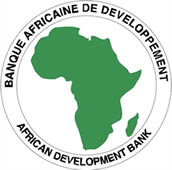According to a research by Harvard (2007) and the Lowy Institute (2016), most free-market economies (except for countries like the People’s Republic of China, where Government exerts considerable power over the economy) have the private sector creating and maintaining most jobs. Ghana is no different. For instance, according to the 2010 Ghana National Population and Housing Census, the private sector accounts for 93 percent of the economically active persons. This sector provides opportunities to a relatively large number of Ghanaians and therefore needs an enabling environment to thrive and promote national development. Taxation is key to creating that enabling environment for private businesses to thrive and promote that needed national development.
Over the years in Ghana, most entities in the private sector have either not been aware of the provisions of the tax laws or have not been able to understand the laws well enough to take advantage of the opportunities provided in the tax laws. Consequently, these private enterprises may have been paying more tax than they ought to if they were aware of the tax incentives applicable to them. In certain instances the entities incur penalties that they could have avoided because they were not aware of their compliance obligations under the tax laws.
With Ghana’s tax revenue flowing mainly from the private sector, it stands to reason that the various tax incentives and compliance obligations will be made clearer and easier for all persons in the private sector by means of continuing tax education by way of tax seminars.
Below is the full report:




































